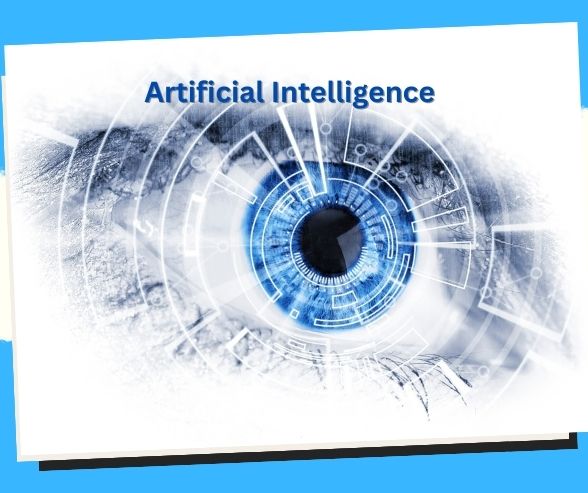
🧠 The Ethics of Employment: How AI Impacts Hiring Processes 📊
🧠 Learn about the profound ethical impact of AI on employment. Discover how AI transforms hiring processes and the challenges it brings. 📊 #AI #EthicalEmployment
🤖👔 Exploring the Ethical Implications of AI-Driven Hiring Processes: Navigating the Path to Fairness and Inclusivity 🌟
In an age characterized by technological advancements and the ever-expanding influence of artificial intelligence (AI), the world of hiring and recruitment has seen significant transformation. AI-driven hiring processes, powered by sophisticated algorithms and data analysis, promise increased efficiency and objectivity. However, beneath the surface of this innovation lies a complex web of ethical implications. This extensive exploration will explore the multifaceted ethical considerations surrounding AI-driven hiring processes, examining their potential consequences and the steps necessary to ensure fairness and inclusivity.
📚 The Rise of AI in Hiring
AI-driven hiring processes encompass various technologies, from automated resume screening and chatbot interviews to predictive analytics for candidate assessment. These innovations aim to streamline recruitment, reduce human bias, and match job candidates more efficiently with the right roles.
However, introducing AI in hiring has sparked ethical concerns, chief among them being the potential for bias, discrimination, and a lack of transparency. Here, we will unpack these concerns in detail.
👁️🗨️ The Ethical Dilemmas
1. Bias and Fairness 🎯
AI models learn from historical data, and if they contain biases, the models can perpetuate them. In hiring, this can manifest as gender, racial, or socioeconomic bias. AI-driven systems might do the same if past hiring decisions favored certain demographics.
2. Transparency and Accountability 🔍
AI algorithms are often perceived as “black boxes” — complex systems where the decision-making process is unclear. This lack of transparency can raise questions about accountability. When an AI makes a hiring decision, who is responsible for it? If bias occurs, it becomes challenging to pinpoint accountability.
3. Data Privacy 📜
Hiring processes involve collecting and processing a wealth of personal data from job applicants. Ethical concerns arise about collecting, storing, and using this data. Ensuring data privacy and security is a paramount consideration.
4. Automation and Job Loss 🤖
As AI-driven hiring processes become more sophisticated, there’s a concern about human recruiters losing their jobs. Automation, while efficient, can have significant socio-economic consequences.
5. Candidate Experience 😟
Using AI in the hiring process can depersonalize and dehumanize the candidate experience. Candidates may feel unheard or unfairly judged by algorithms. This can negatively impact a company’s reputation.
💡 Navigating the Ethical Implications
To address these ethical concerns, organizations and policymakers must proactively ensure fairness, transparency, and inclusivity in AI-driven hiring processes.
1. Diverse and Unbiased Data 🌍
The foundation of any ethical AI-driven hiring process is the data it relies on. Organizations must ensure their training data is diverse and representative of the broader population to mitigate bias. Data curation and preprocessing should aim to remove biased content.
2. Bias Auditing 🔎
Regular audits of AI hiring systems can help identify and correct any biases. These audits may be conducted by internal or external entities, providing objectivity.
3. Transparency and Accountability 📊
Organizations must prioritize transparency in AI-driven hiring processes. Explainable AI techniques can help make the decision-making process more understandable. Additionally, they should establish clear lines of accountability for decisions made by AI systems.
4. Data Privacy and Security 🔒
Data privacy should be a paramount concern. Organizations must adhere to data protection laws and cybersecurity best practices. Applicants’ personal information must be secure and only used for hiring purposes.
5. Ethical Guidelines and Regulation 📜
Establishing ethical guidelines for AI-driven hiring processes can guide organizations toward responsible practices. Governments and regulatory bodies should consider creating and enforcing regulations to ensure fair and transparent AI hiring.
6. Human Oversight 👤
While AI can automate many aspects of hiring, human oversight remains critical. AI can augment human decision-making, but the final decisions should involve human judgment.
7. Candidate Feedback 🗣️
Applicants should be able to provide feedback on their experience with AI-driven hiring processes. This feedback can be invaluable in improving and fine-tuning these systems.
🌎 The Global Perspective
Borders do not limit the ethical implications of AI-driven hiring processes. They are global, affecting job applicants worldwide. International collaboration, shared ethical standards, and regulatory efforts are essential to ensure AI’s fair and ethical use in hiring.
Organizations such as the United Nations and the International Labor Organization actively address AI ethics and labor issues, emphasizing the importance of fairness and inclusivity in AI-driven employment processes.
🚀 Toward an Equitable Future
AI-driven hiring processes have the potential to revolutionize the way organizations attract and select talent. However, their ethical implications should not be overlooked. Balancing efficiency with fairness and inclusivity is the key to ensuring a brighter and more equitable future.
The goal is not to eliminate AI from the hiring process but to make it a tool that aids and enhances human decision-making rather than replacing it entirely.
💪 The Role We All Play
In conclusion, addressing the ethical implications of AI-driven hiring processes is a shared responsibility. Whether you are a hiring manager, a software developer, a policymaker, or a job applicant, you have a role to play in ensuring the ethical use of AI in employment.
By actively working toward fair and transparent hiring processes, supporting regulations that ensure ethical AI, and raising awareness about the importance of these issues, we can collectively create a future where AI-driven hiring processes respect the principles of fairness, transparency, and inclusivity.
In this way, AI will be a force for good, helping match the right people with the right opportunities while respecting the values we hold dear in our global society. 🌍🌟🤝
Related Queries
Ethical implications of AI-driven hiring processes
Ethics of Employment and AI
Ethical dilemmas in AI-powered recruitment
Hiring with heart and ethical AI
Balancing innovation with ethical responsibility in AI hiring
Ethical journey of AI in recruitment
Ethical complexities of AI hiring
Safeguarding equity in AI-driven hiring
Ethical reflections on AI in the hiring process
Ethical AI-driven hiring for a brighter employment future
Save/Share this story with QR CODE
Disclaimer
This article is for informational purposes only and does not constitute endorsement of any specific technologies or methodologies and financial advice or endorsement of any specific products or services.
📩 Need to get in touch?
📩 Feel free to Contact NextGenDay.com for comments, suggestions, reviews, or anything else.
We appreciate your reading. 😊Simple Ways To Say Thanks & Support Us:
1.) ❤️GIVE A TIP. Send a small donation thru Paypal😊❤️
Your DONATION will be used to fund and maintain NEXTGENDAY.com
Subscribers in the Philippines can make donations to mobile number 0917 906 3081, thru GCash.
3.) 🛒 BUY or SIGN UP to our AFFILIATE PARTNERS.
4.) 👍 Give this news article a THUMBS UP, and Leave a Comment (at Least Five Words).
AFFILIATE PARTNERS

World Class Nutritional Supplements - Buy Highest Quality Products, Purest Most Healthy Ingredients, Direct to your Door! Up to 90% OFF.
Join LiveGood Today - A company created to satisfy the world's most demanding leaders and entrepreneurs, with the best compensation plan today.



 Business Technology, Finance Technology & Information Technology
Business Technology, Finance Technology & Information Technology





